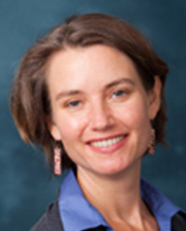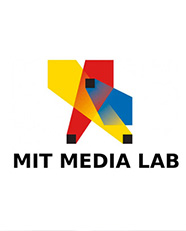How Can We Elevate the Status of Contingent Faculty?

Veronica Czastkiewicz
University of Colorado, Colorado Springs
Description: Most contingent faculty in political science are under-paid, unable to conduct meaningful research, isolated and voiceless. However, compensations, possibilities for career advancement, and collegial inclusion for contingent faculty vary greatly across departments. This team will develop a minimum set of standards for the treatment of contingent faculty, brainstorm about how to implement them across departments, and how to monitor and hold departments accountable for adherence to the standards.
How Can We Make Political Science Education More Intersectional?
Description: The goal of this team is to develop a set of ideas or materials that will help faculty incorporate intersectionality in their classes. The product(s) developed can range from basic activities on how best to introduce concepts of identity or categories of difference in the classroom to the creation of assignments that critically analyze the processes and systems that create and reinforce difference.
What are the ways in which political science departments can create an inclusive and productive climate for all graduate students?
Description: The goal of this team is to brainstorm concrete actions that departments can take to enhance the graduate student experience, with specific consideration towards diversity and inclusion. The hope is that conversations will allow students to share and discuss what different departments are currently doing to improve graduate student life in the department, both in and outside of the classroom. Both graduate students and faculty are welcome to join the conversation! Even if you cannot make it, please take our survey on graduate student experiences here. Our team will analyze the survey data, create a Shiny app and website to house all of the resources discussed and data analyzed.
Developing Institutions to Encourage Sexual Assault and Sexual Harassment Reporting: Insights from Game Theory and Other Paradigms
Description: How do we develop institutions and mechanisms to encourage the reporting of sexual assault and harassment? For example, “information escrow” systems such as Callisto allow people to share information about a perpetrator. What kind of mechanisms are more robust to malfeasance and inaction, for example non-reporting by administrators who themselves are implicated? How do institutions interact with norms and culture—either making institutions less effective or, on the positive side, contributing to the growth of positive enforcement norms? We consider the decisions of all people involved, such as the decision of a survivor whether to report, the decision of administrators on how to handle cases, and the decisions of perpetrators, and think about how properly-designed institutions can affect these decisions.
Using Genomics to Teach About Race
Description:The goal of this team is to discuss best practices for using genomics as a teaching tool, potential ethical challenges, and pedagogical gains and pitfalls that might ensue from this approach. The conversation on race and science is again at the forefront of national discourse and we must continue to think about the intersection of race, politics, and genetics for political science. After the workshop is complete we propose compiling a list of teaching resources in hopes of producing a syllabus for scholars interested in teaching race and genomics. Since this team is sponsored by 23 and me, each team member will receive a free genomic ancestry kit in advance so they can bring results with them to the hackathon.
What Can Men do to Advance Women’s Equality in the Discipline?
Description: The goal of this team is to develop a set of ideas or materials that will guide male faculty who wish to be allies in the effort to promote the advancement of women and female-identifying scholars in the discipline. We seek to compile best practices for 1) individual male faculty and 2) men in positions of institutional power, such as chairs, conference organizers, and editors. We hope conversations also lead to innovative ways to promote and implement social norm and institutional changes. We will divide the team into breakout groups focused on recommendations for different critical actors.
How Can We Improve Experiences and Training in Political Methodology to Recruit and Prepare Students for Grad School?
Description: For four years now the Society for Political Methodology has deployed a portion of its NSF funding to support undergraduate students’ research with hope of encouraging members of under-represented groups to pursue post-grad study in Political Science. We seek new ways to recruit such individuals, and to diversify the ways in which we to support their experience and training in methods.
How, whether, and in what ways can we use citations as a metric of success when citations are known to be flawed?
Description: Citations have been repeatedly demonstrated to be a metric of success that disadvantages women. Yet in many ways they are still one of the most readily available and easily interpretable heuristics for assessing a researcher’s intellectual reach and contributions. Can citations still be used for hiring, promotion, and tenure decisions? We aim to think through this question and potentially develop a resource that can be used to adjust (or inflate) citations based on a researcher’s demographic characteristics and the known biases against them in citations.
Successful Strategies to Recruit and Retain a Diverse Faculty
Description: The goal of this team is to identify concrete, scalable, and sustainable strategies for recruiting and retaining a diverse faculty. Outcomes might include developing new models for understanding the challenge (e.g., pathways versus pipelines), innovative methods for identifying and recruiting candidates, and building creative foundations for an infrastructure of inclusion.
Data Visualization Workshop: How to Visualize Data Effectively to Promote Diversity and Inclusion
Description: During the workshop, Yusaku and In Song will lead a (very) short course in data visualization (in R). Working with the datasets (on diversity and inclusion within political science) that have been assembled by participants, they will walk a larger group through some basic techniques. Participants should be proficient in R and should come prepared to begin analyzing their data, for example, by identifying what variables and relationships they would like to explore. During the rest of the workshop, staff from the MIT Media Lab will offer support to participants.





















